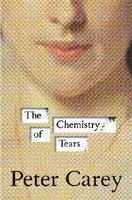 |
Nina Caplan interviews Peter Carey, for "New Statesman", as his latest novel is published in the US: |
Why is Carey so fond of these lurid, self-aggrandising lawbreakers? Most of his novels contain at least one. "I have a bad character." What, "Sumper, c'est moi"? He's joking, I think, and anyway, all characters are partially "moi". But this does seem an odd way to deflect my attention from his roots.
I can understand his reluctance: geographical stereotyping is reductive and Australians have suffered from this more than most. Until recently, white Australia was a fledgling, trying to emulate, overtake and detach itself from the mother country all at once; then there's the fraught history of white Australia's mistreatment of the original inhabitants. This book is partly about the difficulties we all have in seeing what we do not wish to see. Carey cites the New South Wales Aboriginals failing to register the incoming ships of the First Fleet "because they did not know such things existed"; a stunning piece of wilful blindness mirrored by the Englishmen, who then nearly died of starvation while surrounded by the indigenous notion of plenty. There is no tree of knowledge in the sunburned country - on the contrary. It occurs to me that if your homeland's original sin is all about obfuscation and you have ideas you wish to present clearly, it makes sense to take to your heels. Still, only an Australian would turn coming from Australia into the conversational equivalent of a crime.
But then, Carey writes incessantly about crime. His second book of short stories is entitled War Crimes; his first, The Fat Man in History, posits a post-Marxist world where being obese is a criminal activity. He invents thieves and liars and gambling addicts and, yes, convicts. As for Ned Kelly, Carey's extraordinary act of ventriloquism had the dubious distinction of making Australia's most notorious crim an international sensation. Of the central trio in The Chemistry of Tears, one, as we have seen, almost wound up a convict (he narrowly escaped becoming a parricide, too); another is a thieving, dipsomaniac horologist, and, while Henry seems the soul of probity, he might be said to be guilty of plagiarism - a favourite Carey sin.
